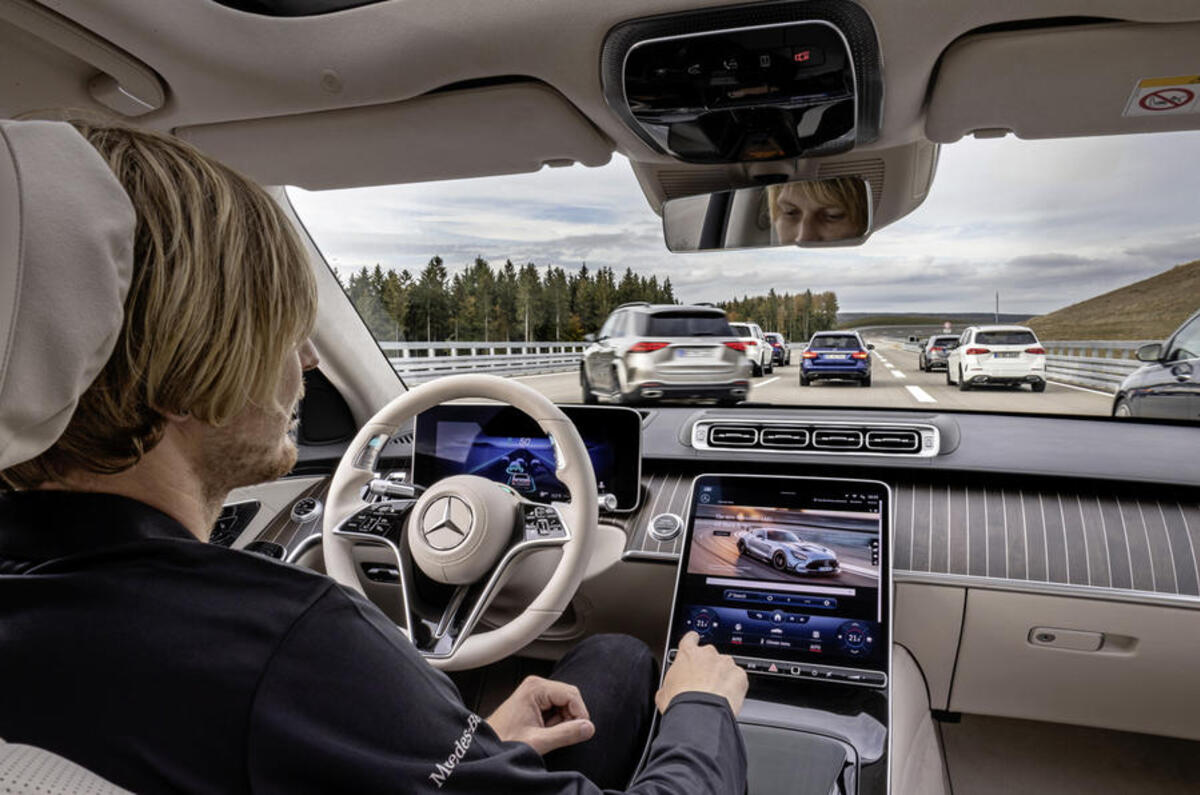Drivers in the UK will be able to watch television while in a moving car under planned changes to the Highway Code that address the impending roll-out of self-driving vehicles.
Despite drivers being allowed to view content not related to driving on built-in display screens when the self-driving vehicle is in control, it will still be illegal to use mobile phones in the same scenario.
The Department for Transport (DfT) said that research has shown that mobile phones pose a greater risk in distracting drivers.
Other changes to the Highway Code are intended to ensure the first wave of self-driving technology will be used safely, explaining that while the vehicle is travelling in self-driving mode, the motorist must be ready to take back control in a timely manner if prompted, such as when a motorway exit is approaching.
The Code also now states: “While an automated vehicle is driving itself, you are not responsible for how it drives, and you do not need to pay attention to the road."
The Government is predicting that Britain’s first vehicles approved for self-driving could be ready for use later this year. It added that vehicles will “undergo rigorous testing and only be approved as self-driving when they have met stringent standards”.
The first step towards self-driving cars is likely to be vehicles travelling at slow speeds on motorways in congested traffic. So-called ALKS (automated lane-keeping systems) enable a vehicle to drive itself in a single lane up to 37 mph, with the driver able to take back control if required.
The government first announced plans for implementing ALKS widely last year, when it laid out how the technology could legally be defined as self-driving as long as vehicles using it receive GB type approval and that there's no evidence challenging a car’s ability to self-drive.
It intends to have a full regulatory framework to support the widespread roll-out of autonomous vehicles by 2025. It said that it will “help make the movement of people and goods safer, greener and more efficient”.
Transport minister Trudy Harrison said: “This is a major milestone in our safe introduction of self-driving vehicles, which will revolutionise the way we travel, making our future journeys greener, safer and more reliable.
“This exciting technology is developing at pace right here in Great Britain, and we’re ensuring we have strong foundations in place for drivers when it takes to our roads.





Join the debate
Add your comment
All these semi autonomous (level 2-3) systems make me intensely nervous and this article shows why. It needs to be clearly defined who is driving, either 100% the software with no human intervention required, (or even possible other than ordering the vehicle to safely stop) or 100% the meatbag behind the wheel with no software intervention beyond auto emergency braking etc (even lane keeping assist and dynamic cruise control make me hugely uncomfortable). You should have to come to a complete stop before the vehicle allows you to change modes. Complete clarity about who/what is driving is required or avoidable accidents will ensue due to confusion. I’d love a level 4 capable vehicle for the boring bits but until then, include me out.
Isn't going to make much difference to anything, on a long run people are going to stop paying attention anyway, if they didn't then someone would've put the brakes on instead of doing whatever they were doing while their Tesla slammed in to a truck; hasn't that happened at least twice? When you're on a long journey the passengers always fall asleep, is the car going to be able to tell that the driver hasn't also done that? Interior cameras can't see your eyes are closed if you have sunglasses on. I know that isn't entirely relevant to something that you'd only use in bad traffic, but if nothing goes wrong at 40ish won't they start gradually nudging the speed up?
So you have to be ready to take back control when needed? What happens if youve just got to the best bit of the movie you're watching, how ready will you be then? Its a farce.